Ex‑Scientist Builds Rs 1.75 Cr Moringa Empire & Empowers 1000+ UP Farmers
Kamini Singh’s journey is one that began in the halls of some of India’s top research institutions — the Central Institute for Subtropical Horticulture (CISH) and the CSIR-Central Institute of Medicinal and Aromatic Plants (CIMAP).
As a scientist with years of experience in horticulture, she was deeply immersed in the world of organic farming, making strides in research that had the potential to change the way we think about agriculture.
Yet, despite all her academic achievements, Kamini couldn’t shake the feeling that something was missing.
While working on her PhD, she realised her research seldom reached the hands of the very people who needed it most — the farmers working tirelessly in the fields. Her groundbreaking work, though impressive on paper, wasn’t reaching the grassroots level.
“The insights and innovations born within my lab walls seldom reached the hands of those who needed them most — the farmers,” she shares in a conversation with The Better India.
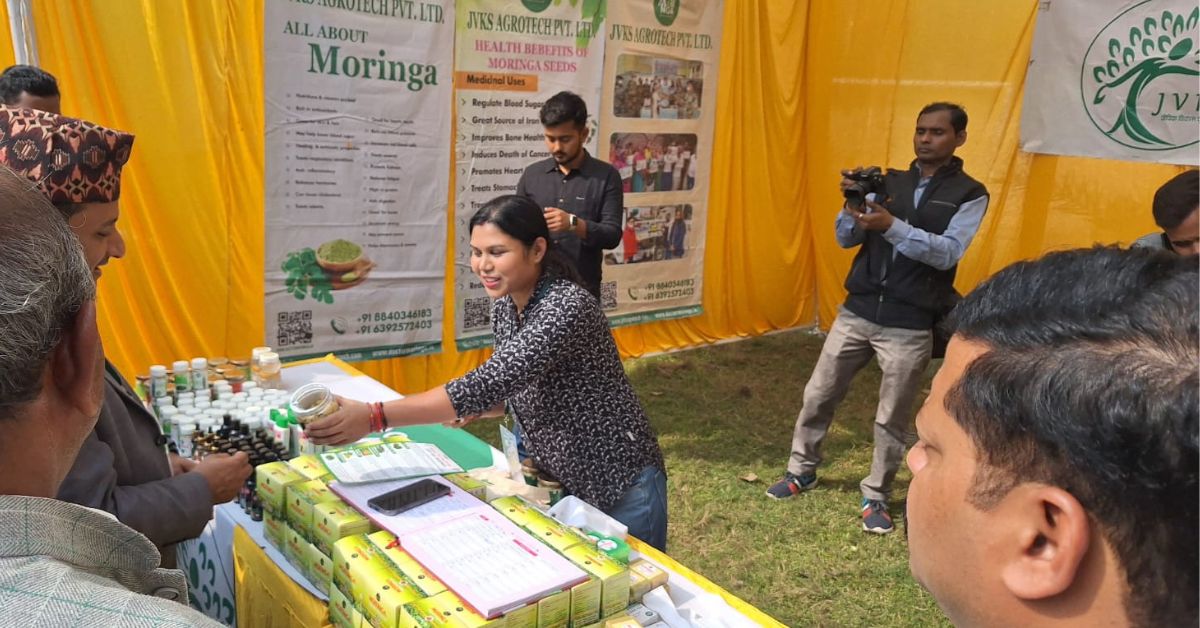 Kamini shifted from research to farming, using moringa to help farmers boost their incomes.
Kamini shifted from research to farming, using moringa to help farmers boost their incomes.
It was this realisation that pushed Kamini, with 17 years of research experience, to leave behind the lab and take her expertise to the fields of Uttar Pradesh. What followed was a change in career and the beginning of a mission to bridge the gap between research and reality and bring real, lasting change to farmers’ lives.
The moringa magic
In 2016-17, Kamini Singh was entrusted with a critical mission: to lead a project aimed at promoting and training farmers in organic practices across Uttar Pradesh. “During the first 2-3 years, achieving good yields in organic farming is difficult because the soil needs time to rejuvenate and regain fertility without relying on synthetic chemical inputs,” she says.
“While many farmers registered for the initiative to take advantage of government subsidies, they often didn’t follow through with genuine organic practices, resulting in poor returns for their produce,” she adds.
This led Kamini to think about introducing crops that required minimal input but offered high yields. “Moringa, or drumsticks, known for their nutritional value and history as a dietary staple, seemed promising to me. It emerged as a superfood with both a high yield potential and low input requirements — an ideal candidate for organic farming,” she says.
In 2017, Kamini took a bold step — leasing seven acres of land in Lucknow to experiment with moringa farming. The results exceeded expectations.“Moringa not only thrived with minimal irrigation but also adapted well to the climatic conditions,” she shares.
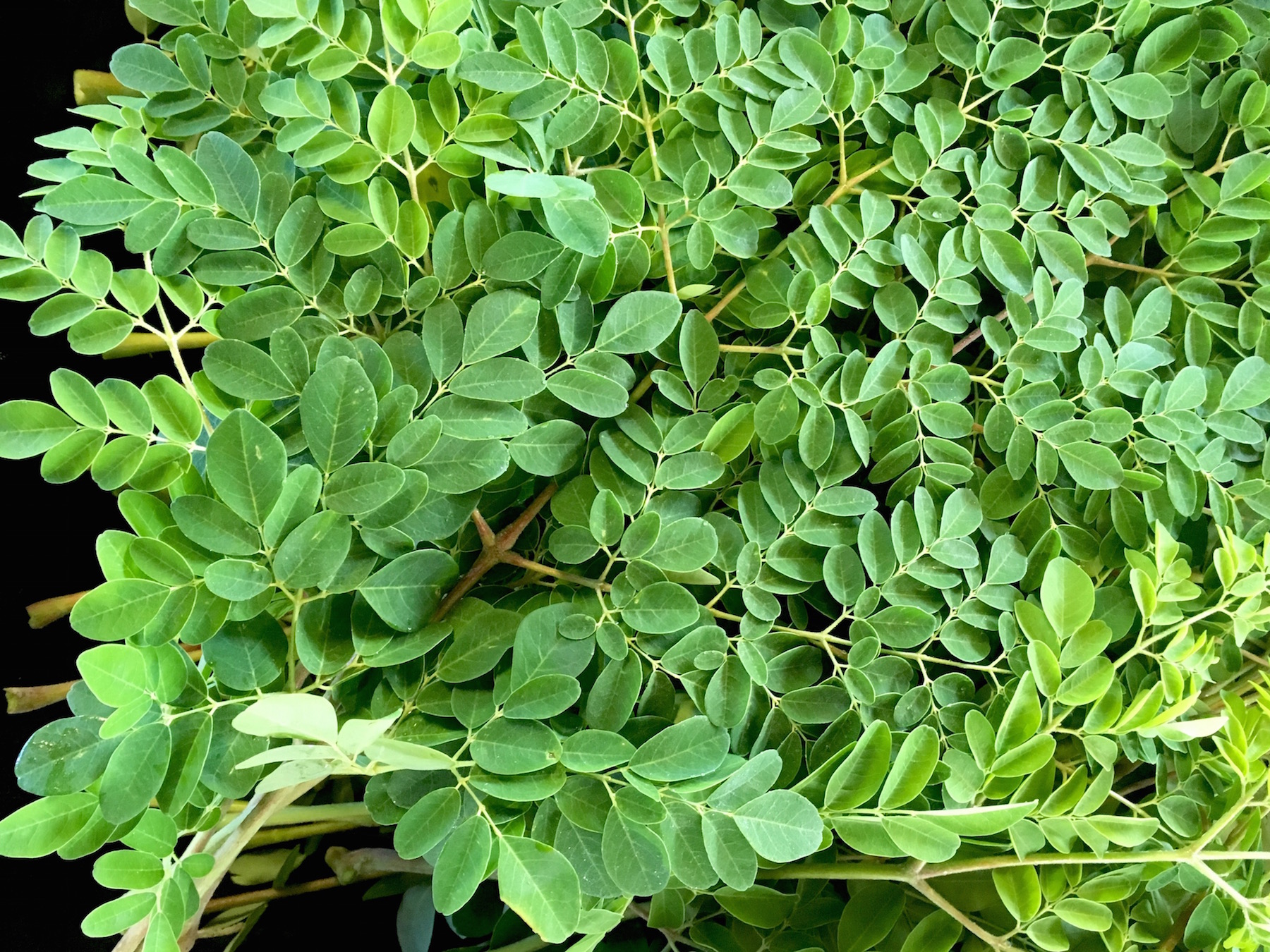 Moringa is known for its nutritional value and history as a dietary staple.
Moringa is known for its nutritional value and history as a dietary staple.
With this success in hand, Kamini introduced an innovative strategy to local farmers: cultivate moringa alongside traditional crops. “By planting it along farm boundaries, they could experiment without sacrificing main crop yields. The impact was immediate — saving approximately Rs 30,000 annually, a figure that piqued the curiosity of many farmers,” she adds.
Shalikram Yadav, from the Bakshi Ka Talab area of Lucknow, has been cultivating moringa for the past four years. “I met ma’am at a city stall, where she convinced me to plant moringa saplings along the boundary of my field. I initially planted 400 saplings along the field boundary, but due to substantial profits, I have now expanded to 10 acres,” he says.
“Initially, I was apprehensive about starting this venture, but she gave me the confidence and addressed all my concerns and fears. For a farmer, the main challenge is often marketing, but she addressed this concern as I sell the moringa leaves directly to her. Fortunately, I experienced significant profits. Currently, I am earning Rs 60 per kg of moringa leaves. This season, I managed to harvest five quintals. Although the yield was lower due to weather changes, I still did not incur any losses. I’m glad I proceeded with it and have no regrets,” he adds.
The success Kamini saw in the beginning gradually sparked a genuine interest in the community. Farmers, curious about moringa’s potential, began to join her initiative. What started as a small group soon grew into a network of over 1,050 farmers across Uttar Pradesh. For each of them, it wasn’t just about growing moringa; it was about planting the seeds for a more sustainable way of life.
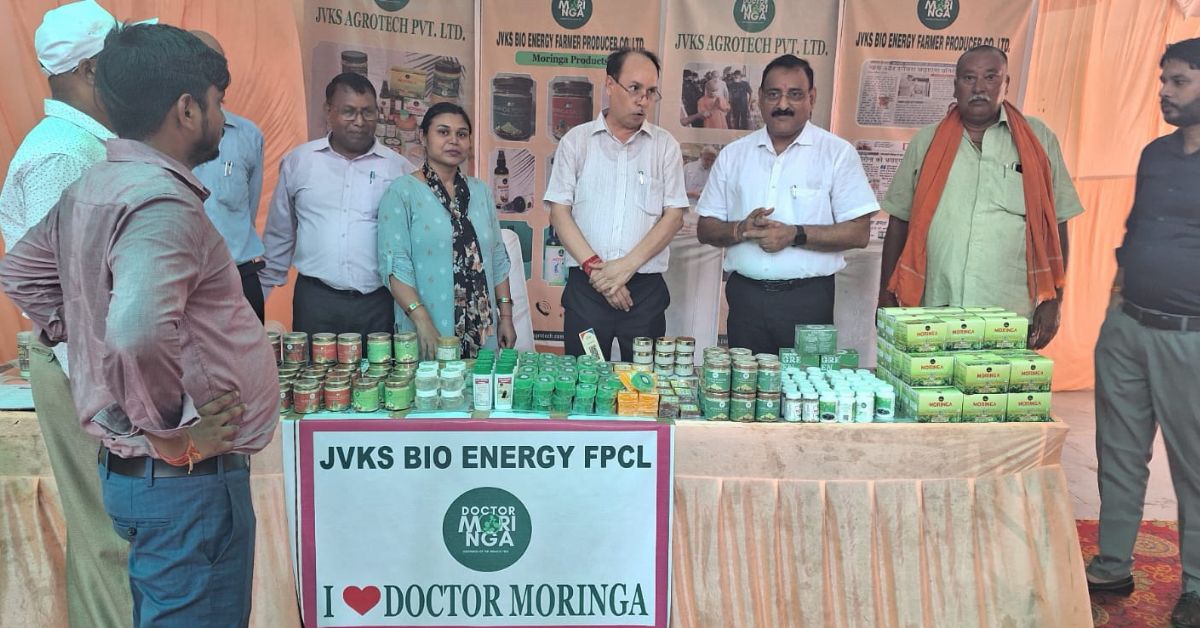 As demand for her products grew, the venture showed its true potential.
As demand for her products grew, the venture showed its true potential.
From lab to land
The early marketing stages presented challenges typical of any nascent agricultural product. “Moringa, usually sold by the tonnes, required inventive solutions for small-scale producers. That’s when we turned to value addition and began processing the modest yields into powders,” she says.
What began as a small-scale solution soon grew into a purposeful enterprise, expanding into a range of moringa-based products. Today, Kamini’s company offers 22 different items, from soaps and green teas to cookies, capsules, oils, and face serums.
In 2019, Kamini formalised her operations into a collective endeavour — Doctor Moringa Pvt Ltd. The company, along with its Farmer Producer Organisation (FPO), provided a structured platform enabling farmers to market their produce effectively. “The FPO ensured farmers could sell their produce in centralised locations, thereby cutting intermediaries and fortifying their economic security,” she says.
Turning Rs 9 lakh into Rs 1.75 crore
As demand for her products grew, the venture showed its true potential. What started with a Rs 9 lakh personal loan is now a business with a turnover of Rs 1.75 crores and a steady 30 percent profit margin.
Meanwhile, Kamini’s scientific insights and dedication to farmer education serve as foundational pillars of her work. She employs her research expertise to conduct meticulous analyses, checking for factors such as germination rates and pest control while ensuring the quality and safety of moringa crops.
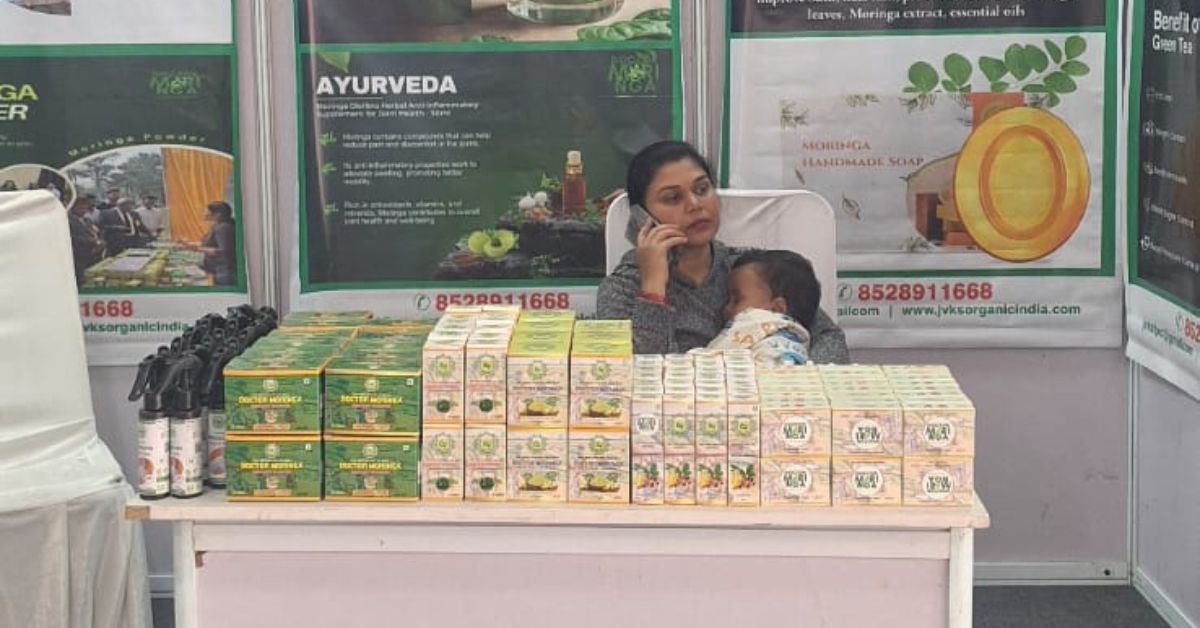 Kamini’s company offers 22 different items, from soaps and green teas to cookies, capsules, oils, and face serums.
Kamini’s company offers 22 different items, from soaps and green teas to cookies, capsules, oils, and face serums.
Through hands-on training sessions and practical demonstrations, Kamini equips farmers with the tools they need to become confident, skilled organic farmers. She doesn’t just teach them the basics of organic farming; she shows them how to implement these methods on their own land, making them feel capable and self-reliant.
Anil Kumar Singh, who owns mango orchards in the popular Malihabad belt of Lucknow, turned to growing moringa on 17 acres of his farmland. “Four years back, I’d started with an acre of land but there is immense profit in this crop. Initially, I had little knowledge about moringa, but as I was getting technical support, directly from a scientist, I took a chance and I got good results.”
“Earlier, I would get Rs 40,000 from wheat or paddy, but now I get up to Rs 1.5 lakh from the same land. I get profits by selling both leaves and drumsticks. I received my return on investment of Rs 30,000 in the very first year. Seeing my success, more local farmers have adopted it,” he adds.
Her vision translates into more than economic prosperity for these smallholders. It embodies a paradigm shift towards integrated and multilayer farming, creating a sustainable agricultural ecosystem. “By switching to moringa farming and value addition, farmers could earn Rs 1 lakh alone from just one acre of land, compared to traditional crops that would only fetch them Rs 25,000 annually,” she shares.
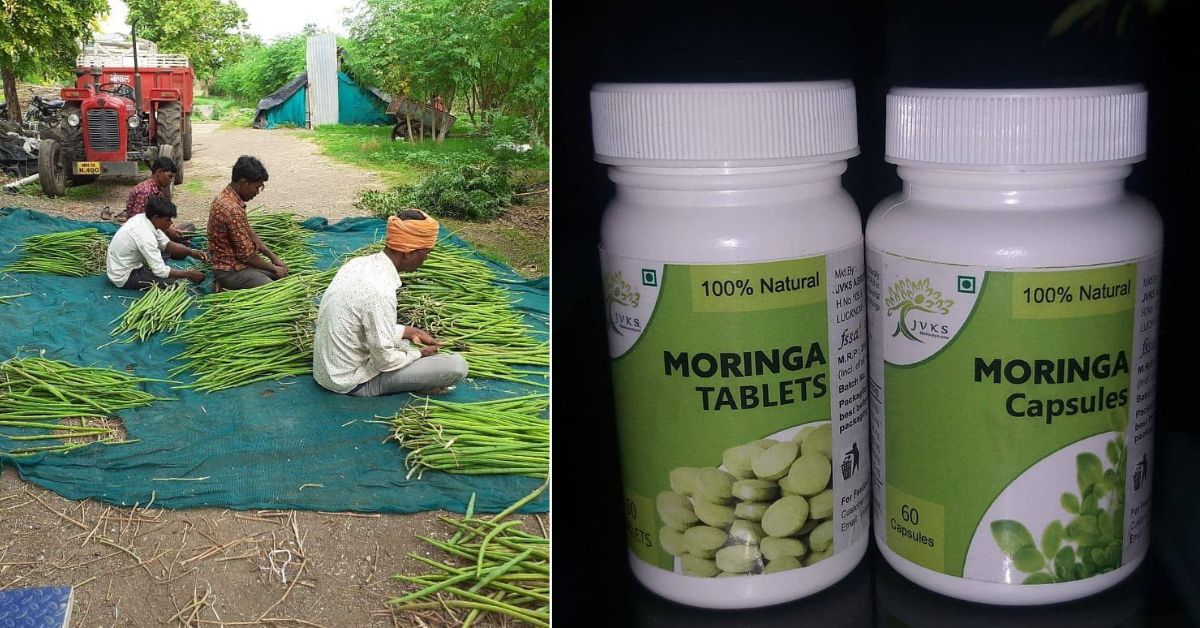 Kamini empowered over 1,000 farmers with organic moringa farming.
Kamini empowered over 1,000 farmers with organic moringa farming.
As moringa farming continues to spread across 15 villages, including Gauraiya and Patona near Lucknow, it’s clear that its impact goes far beyond the fields. Kamini’s vision is reshaping the agricultural landscape—creating not just economic opportunities, but also a sustainable, socially-driven movement that is transforming lives.
But what was it like for Kamini to take that first step? What was the moment that pushed her to leave everything behind? In 2015, Kamini made the difficult choice to leave her stable government job to pursue a PhD and step into the world of entrepreneurship. “My family was very upset with my decision to leave a secure and prestigious government position. I tried to convince them, but nobody understood,” she recalls, reflecting on the hard decision.
While her family was initially hesitant, Kamini’s decision turned out to be the right one. As her work began to create tangible change, the impact spread far beyond what she imagined.
“This shift from paper to plough symbolises the essence of my life’s work, marking not just a career shift but the heart of my true achievement, which is transforming lives by making science meaningful at the grassroots level. Instead of remaining just a scientist, becoming a job creator has empowered me to directly support farmers and merge science with rural development,” she smiles.
Edited by Leila Badyari; All images courtesy Doctor Moringa Pvt Ltd
News